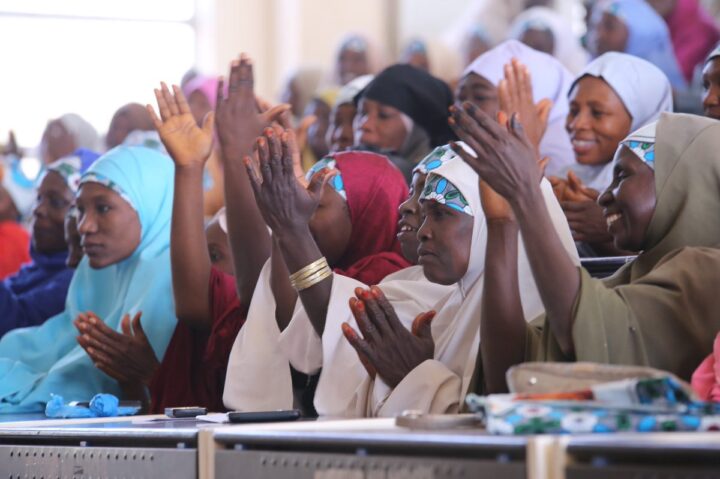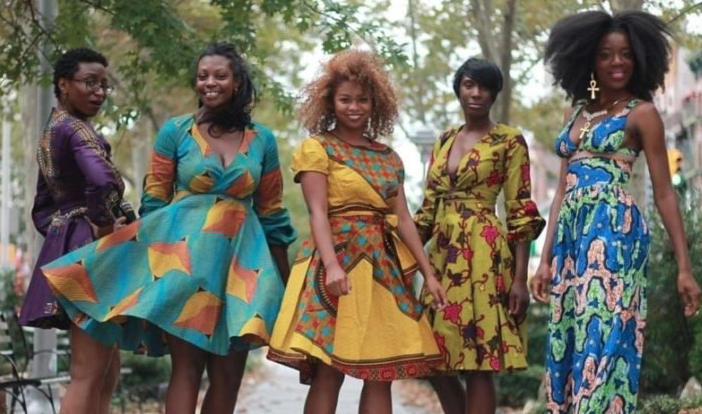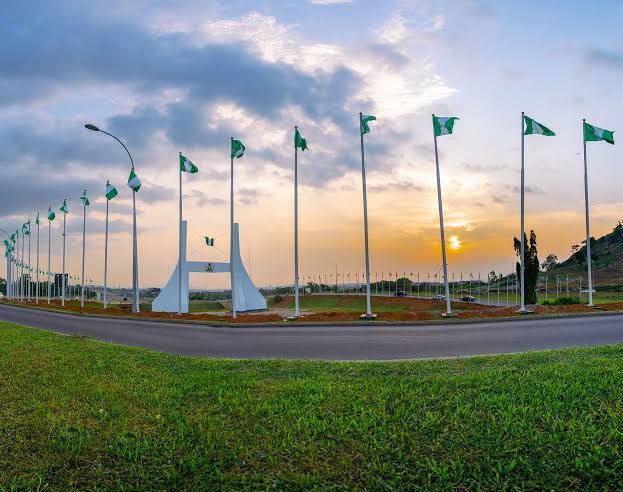Aminu Adamu, mother of two was sleeping when the insurgents attacked her village in Bama. She ran with others for 6 hours before they got a car tha took them to Elminskin camp. WFP has supported her with monthly food rations as well as nutrition supplement for her youngest child, Muhammed for three years. WFP provides nutrition support to mothers and pregnant women, educating them on best practices to raising healthy children as well as providing nutritious supplements to help their children grow healthier. Photo: UNOCHA/Damilola Onafuwa
BY CLAIRE MOM
Over the years, the discourse centring on the empowerment of women in their political, social, and health status has found some measure of success. Global movements and labour laws have been tweaked to push for gender equality and sustainable development. However, one area has stayed grey; how much time is enough for a maternal leave from work?
In many African countries, the answer is shocking. Nigeria, for example, permits an inadequate sixteen weeks as recuperation time for mother and child. But what seems insufficient for Nigeria would be generous for new mothers in countries like Zambia, Ghana, and Kenya who allow for a meagre twelve weeks. Well, at least they are paid.
Women across the continent continue to face discrimination at their workplaces pertaining to maternity issues. Some organisations set up rules as extreme as prohibiting their female staff from getting pregnant within a stipulated time from their appointments. In very common cases, pregnant single women are denied the benefits of maternity leave on the basis of being unmarried. These women face penalties such as salary deductions, demotions, and in some cases, termination if they protest against these hostile rules.
Advertisement
Sadly, not every woman can afford to lose her job in this fight. Some are breadwinners in their homes. As a result, these women are left to bear the consequences of the jarring implications of these laws. Recently, for example, a woman lost her three-month-old son owing to the demands of her workplace – a termination of her maternal leave.
The argument these organisations present is decreased productivity; the absence of an extra worker would hamper an organisation’s ability to put in place a paid maternity leave longer than sixteen weeks. Questionable. Still, what these organisations fail to realise is that optimal productivity can only be gotten from an all-round healthy staff.
Let me explain. Ideally, a woman needs about six weeks after childbirth to fully heal. It could take longer, depending on the nature of birth or any underlying health issues. According to a recent study, one in seven women develops postpartum depression (PPD). This compromises brain response, behaviour, and productivity in new mothers. Social factors stemming from lack of support, empathy, and understanding are some of the many risk factors for this effect on women.
Advertisement
How then is a woman who has barely had time to adjust to the vast psychological, hormonal, mental, and physical changes to her body expected to give an optimal performance at her workplace? It does not make sense.
Unfortunately, African countries are not the only ones erring in this regard. The United States, one of the world’s wealthiest nations, ranks near the top in terms of discrimination against women, offering no national paid maternal leave. Less than half of the country’s population has access to paid leave through their employers, only if they are in a good mood, of course. So much for the self-proclaimed “land of the free”.
Thankfully, European countries are changing the narrative. Countries like Bulgaria, Greece, and the UK offer as much as 39 to 58 paid weeks of maternity leave for women. I don’t know what screams women empowerment more than that.
Understandably, these countries have the resources to fund their programs. No pressure for Africa. However, while the labour acts in African countries like Nigeria are commendable, more efforts geared at protecting women, especially in private establishments, are urgently needed.
Advertisement
Countries who are signatories to the Convention on Maternity Protection, an International Labour Organisation treaty, should domesticate their laws and protect these vulnerable women.
It is not asking for much. Instead, it is promoting gender equality today for a sustainable tomorrow. It is breaking the bias for International Women’s Day.
Mom is a Nigerian journalist notable for advocating strongly for sexual and reproductive health rights and gender equality for women.
She can be reached via [email protected] or on Twitter @speakclairely_
Advertisement
Views expressed by contributors are strictly personal and not of TheCable.
Add a comment






